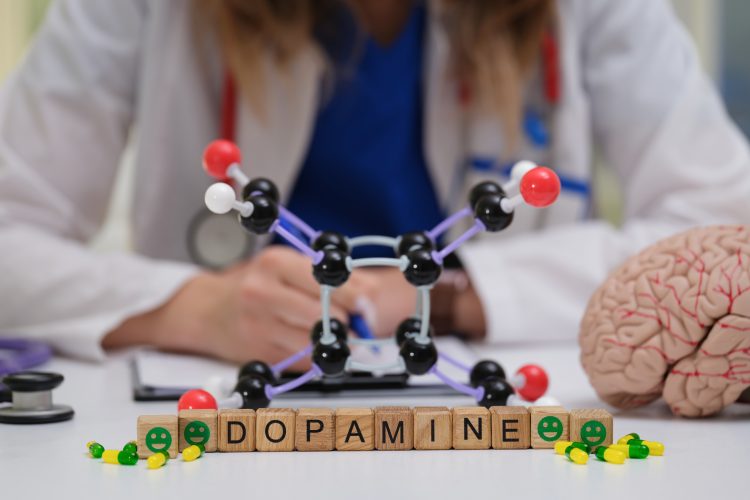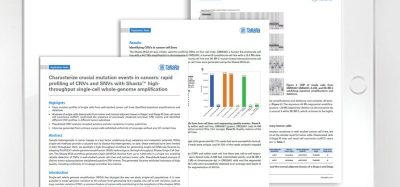Study identifies safer target for dopamine-linked disorders
Posted: 5 June 2025 | Drug Target Review | No comments yet
A rare genetic glitch causes dopamine to leak in the brain – now researchers may have found a way to stop it, without the risks of current treatments.


A new study led by scientists at Florida Atlantic University (FAU) offers a promising step forward in the treatment of dopamine-related neuropsychiatric disorders. Unlike current therapies, it avoids the high risk of side effects and addiction.
Published in Molecular Psychiatry, the research highlights how blocking a specific brain receptor, the kappa opioid receptor (KOR), can effectively normalise disrupted dopamine signalling. The findings support the development of a more targeted class of therapeutics for conditions such as ADHD, autism spectrum disorder (ASD), and bipolar disorder (BPD).
Dopamine plays a central role in regulating mood, motivation, movement and cognition. Its signalling is tightly regulated by proteins known as dopamine transporters (DAT), which clear dopamine from synapses once their job is done. But when this system goes awry, standard treatments like amphetamines can lead to tolerance, misuse, or unwanted side effects.
Biomarkers aren’t just supporting drug discovery – they’re driving it
FREE market report
From smarter trials to faster insights, this report unpacks the science, strategy and real-world impact behind the next generation of precision therapies.
What you’ll unlock:
- How biomarkers are guiding dose selection and early efficacy decisions in complex trials
- Why multi-omics, liquid biopsy and digital tools are redefining the discovery process
- What makes lab data regulatory-ready and why alignment matters from day one
Explore how biomarkers are shaping early drug development
Access the full report – it’s free!
A novel strategy to normalise dopamine
The FAU-led team focused on a rare genetic variant called DAT Val559, which causes the dopamine transporter to malfunction. Instead of clearing dopamine, it leaks it into the synapse in a slow, steady stream, blunting the brain’s ability to respond to normal dopamine cues.
The DAT Val559 genetic variant has been found in individuals with diagnoses of ADHD, ASD and BPD.
“For some people, a rare genetic mutation known as DAT Val559 causes the dopamine transporter to ‘run backward,’ leaking dopamine into the synapse rather than sucking it away, turning the transporter from an efficient nano-vacuum cleaner into a nano-leaky faucet,” explained Dr Randy D. Blakely, Executive Director of the FAU Stiles-Nicholson Brain Institute.
The researchers turned their attention to KORs – receptors that, when activated, suppress dopamine by decreasing its release and boosting transporter activity. But instead of activating them, they blocked them using a long-acting antagonist. The results were striking.
In animal models carrying the DAT Val559 mutation, the KOR-blocking drug reduced the number of faulty transporters at the cell surface and decreased dopamine leakage. It also corrected several behavioural abnormalities – without affecting animals with normal dopamine systems.
“The DAT Val559 genetic variant has been found in individuals with diagnoses of ADHD, ASD and BPD,” said Blakely. “This led us to ponder whether blocking KORs could reduce the expression of leaky dopamine transporters and thereby actually normalise dopamine signalling and restore normal cognition and behaviour.”
Implications for psychiatric treatment
Importantly, the improvements were observed in both male and female mice, despite the sex-specific effects previously reported for the mutation.
“Our studies indicate that when there’s an issue with how DAT is expressed, activated or inhibited, the brain can have altered states of dopamine availability, creating the traits that psychiatrists describe as inattention or compulsivity as well as altered patterns of reactivity and emotion,” said Dr Felix P. Mayer at the University of Copenhagen.
Our studies indicate that when there’s an issue with how DAT is expressed, activated or inhibited, the brain can have altered states of dopamine availability.
While DAT Val559 is rare, the study has broader implications. Dopamine signalling is shaped by multiple pathways beyond genetics, and subtle dysfunction in these regulatory mechanisms may underlie more common forms of psychiatric illness. This suggests that KOR antagonists could benefit a wider patient population.
The study’s findings suggest KOR antagonists may represent a more tailored, precision-based approach to treating dopamine dysregulation. As Blakely puts it: “The key will be defining the type of dopamine change that contributes to the disorder.”
This study was published in Molecular Psychiatry.
Related topics
Drug Discovery, Drug Discovery Processes, Neurosciences
Related conditions
Attention Deficit Hyperactivity Disorder (ADHD), autism spectrum disorder (ASD), Bipolar Disorder (BPD)
Related organisations
Florida Atlantic University (FAU)








